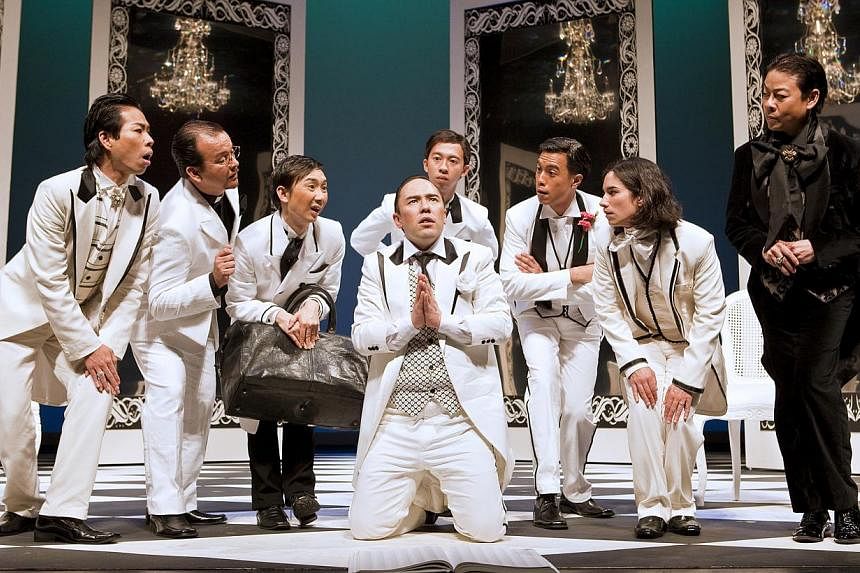I read with some disappointment the news that Arts Engage, a network of arts practitioners from various disciplines, had rejected a proposal by the Media Development Authority (MDA) for arts groups to self-classify their productions.
I can understand the reason for the Arts Engage group's response. It would indeed be self-censorship, and of the worst kind, if arts groups were to have official classifications on their minds as they went about crafting their works.
On the other hand, the MDA is moving in the right direction in devolving some of its powers of content classification to the relevant community - in this case the arts group.
The issue then is to arrive at a solution that can address both concerns without compromise. This modest proposal is an attempt at such a solution.
Self-classification is a form of self-regulation, which is regulation of an industry by the industry. The minimal conditions for successful self-regulation are: a motivated industry, a small number of large players, and a regulatory backstop.
Because of the common misunderstanding that the "self" in self-regulation refers to the individual or the company (as opposed to the industry), the term co-regulation is sometimes used to refer to what had been known as late as the early 1990s as industry self-regulation.
Are the conditions met? Well, the regulatory backstop in this case is the MDA. The number of players is not very large in Singapore. This leaves the issue of motivation of the industry as the critical criterion for the success of such a self-regulatory regime.
The major obstacle to overcome is self-censorship. The answer is to separate the creative function from the regulatory (that is, classification) function.
I propose, therefore, that the self-classification be done not by the individual groups themselves, but by a committee formed by representatives of the groups. In other words, it is a self-classification committee that classifies.
Imposing the regulatory function on a creative person is very likely to lead to prior restraint. This is the worst possible form of censorship because the works do not even surface. At the superficial level there is no censorship because there is nothing to censor. The reality is that ideas are stifled.
A common criticism of self-regulation is that the regulated industry will act only in its own self-interest. That is, what is there to prevent this self-regulatory body from merely pretending to self-regulate?
Here is where the issue of motivation arises. The self-classification committee must take an objective view, appointing to the committee thoughtful members who do not merely rubber-stamp. Appointing cynical persons to a committee whose voting pattern is predictable is the surest path to self-destruction.
In any event, there should be an appellate body so that complaints or appeals against the decisions of the committee may be reviewed. Such an appellate body should consist of respected individuals of the community.
Looking around the ivory tower where I work, the names of professors Tommy Koh, Cham Tao Soon, and Eddie Kuo come readily to mind. All have headed committees, organisations and institutions of one form or another, connected with the arts. Other committee members could be retired rather than active political leaders (so that there is no accusation of political interference), and business leaders known to be patrons of the arts.
This self-classification committee and its appellate body should replace the current MDA-appointed Arts Consultative Panel.
According to the MDA's statistics, most of the works of arts groups are easy to classify. That leaves a small number of controversial works.
From my experience working with self-regulatory bodies such as the Advertising Standards Authority of Singapore and CaseTrust, incidents that need the input of the committee are typically fewer than 10 per cent. And of this 10 per cent, the cases that require the attention of the appeal committee are even fewer - literally low single digits in a year.
There will be some costs associated with running this self-classification committee. But the costs will be minimal: a part-time ad hoc secretariat to facilitate the meeting and then the cost of the meeting itself. I recommend that the MDA fund the costs from the savings effected through the formation of such a committee.
Because self-regulation can only be truly effective if the parties concerned are willing to accept it, I suggest that the system be voluntary.
That is, those who do not want to come under this self-classification committee will continue to submit their proposals for review directly to the MDA.
To encourage arts groups to subscribe to the self-classification scheme, the decisions of the body, including its oversight appellate body, must bind both those subscribing to it as well as the MDA.
I believe that the spirit of the Arts Engage response, in not wanting artists to be forced to think about classifications even before they put their ideas out, is correct. Singapore wants to have a vibrant, edgy arts scene.
But I also believe that the spirit of the MDA consultation paper is correct. Decisions on what are fundamentally issues of taste of arts should be decided by the arts community.
It would be a tragedy if the two parties, acting with the best of intentions, came to an impasse, or worse, took a step back.
The author is professor of communication studies and director of the Singapore Internet Research Centre at Nanyang Technological University, and has researched self-regulation of the media. He is also a legal adviser to the Advertising Standards Authority of Singapore.

